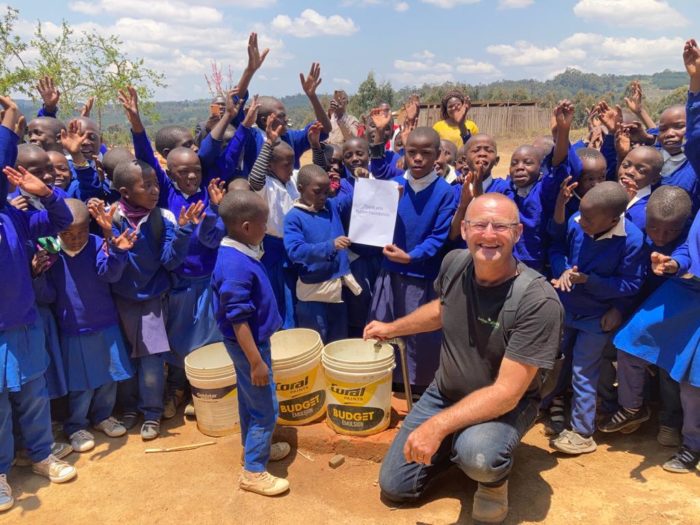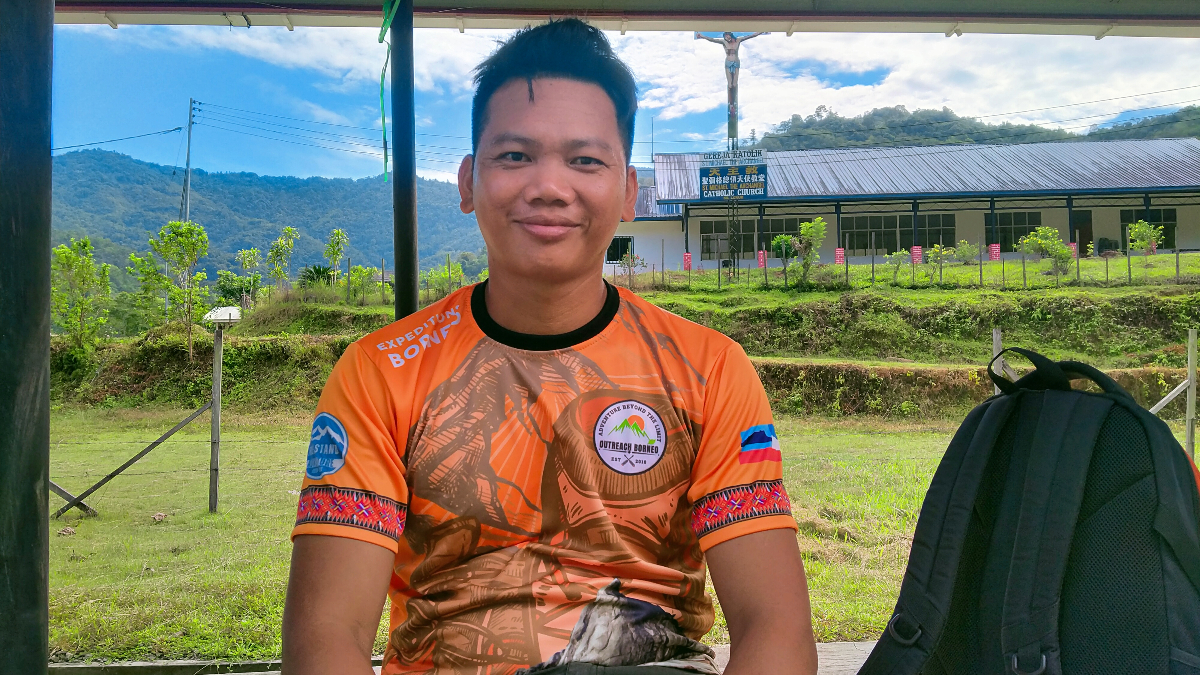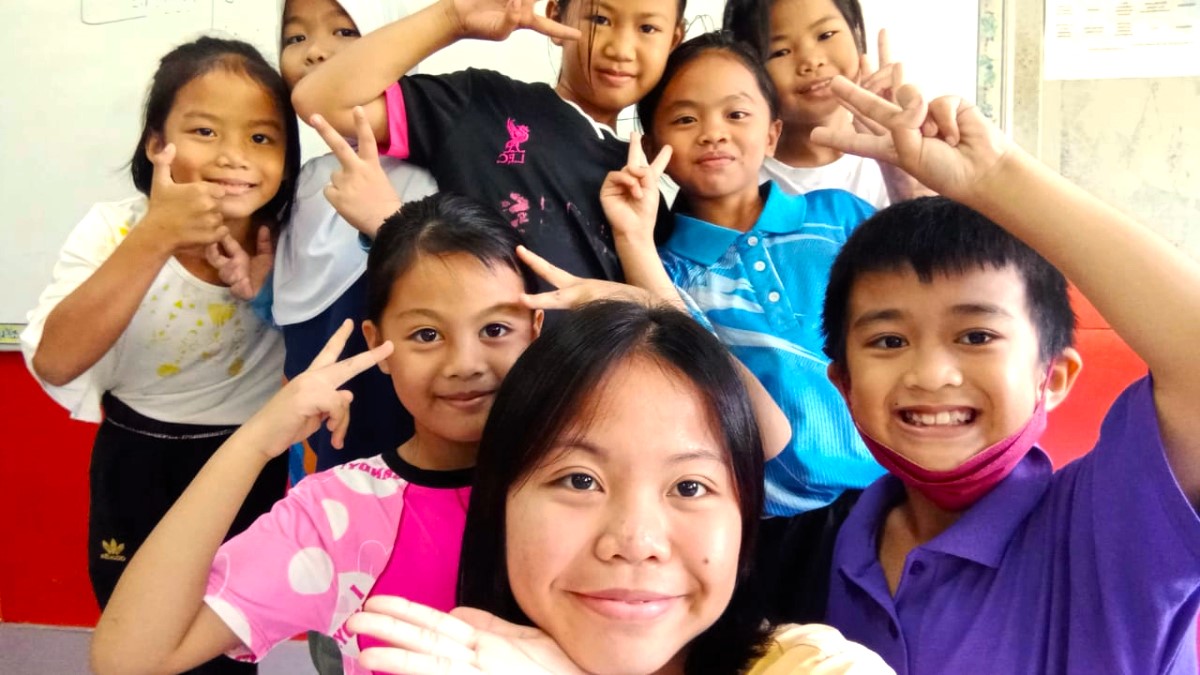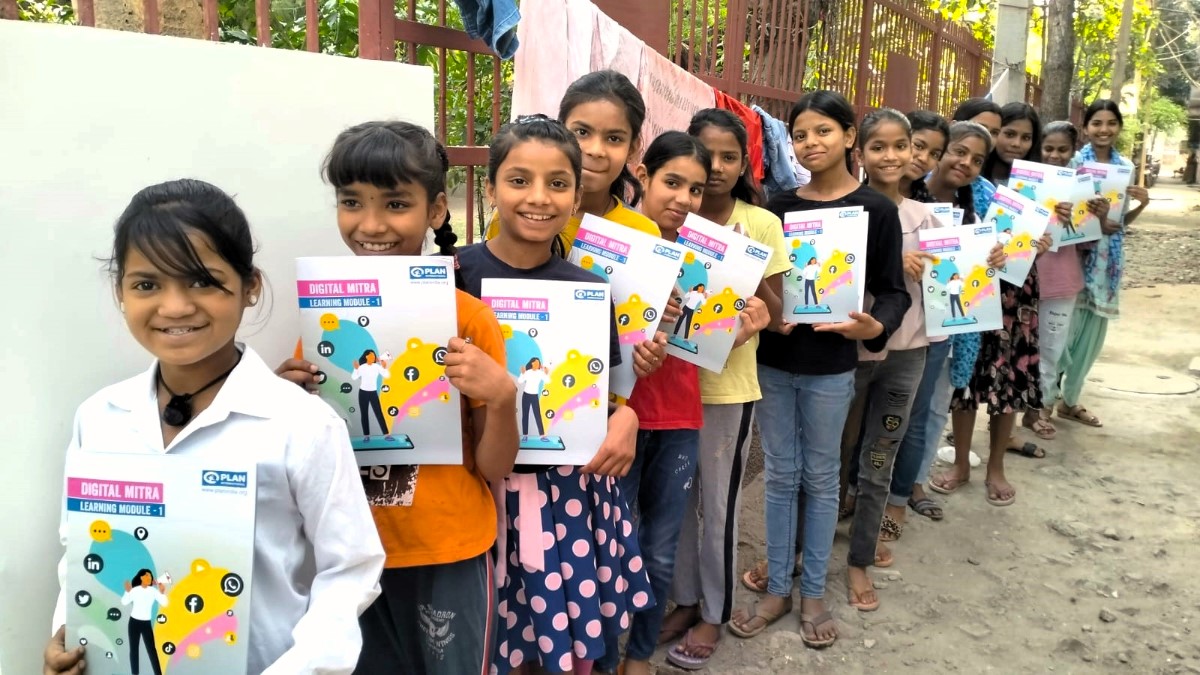As a young girl, Magdalena Mwamtende would brave the elements and risk the dangers of the wilderness to trek the distance to the nearest water source and collect water for her family’s daily usage. It was on one of these journeys that she had taken hundreds of times before in the Southern Highlands of Tanzania, where she witnessed her friend almost drowning.
“The river is located very far from home. Occasionally, we would have to miss school so that we could hike to collect water. We would walk quite the distance to the river and sometimes we would come across dangerous animals like lions or vipers in the surrounding areas. One day, my friend almost drowned while entering the river and it was so scary,” she shares.

Since she was a child, Maggie has been braving the wilderness in rural Tanzania daily to collect water for her household
The now 27-year-old, affectionately known as Maggie, grew up steeped in rampant poverty in rural Tanzania, where the villagers’ main water source was the river. Like Maggie, women and children across the country carry the burden of slogging several kilometres to nearby rivers, canals, ponds and natural springs to collect water necessary for bathing, cooking, laundry and even drinking.
This lack of access to clean water impacts 70 per cent of households in Tanzania, putting the health of the population in jeopardy and leading to over 4,000 child deaths yearly from diarrhoea caused by drinking contaminated water. Amidst this water and sanitation crisis in the nation, children – particularly girls – miss out on their education because they bear the responsibility of collecting water for their households, just like in Maggie’s case.
“Water is a basic need. Clean and sufficient water is a crucial requirement for hygienic living. The lack of access to clean water can lead to serious ailments and even death. Many of us in urban societies are left in a tizzy when faced with water shortages but imagine having to travel miles and miles daily to fetch water from a river which is not even technically clean water. The journey itself poses several risks and dangers that these communities are vulnerable to. This is a sheer disparity that needs to be ended,” says Santhi Periasamy, Head of RYTHM Foundation, the social impact arm of the QI Group.
Also Read: RYTHM Foundation Partners With Water For Africa To Provide Clean Water In Rural Tanzania
Thankfully, various non-profit organisations are working around the clock to improve access to clean water and sanitation across the republic, including RYTHM Foundation and its long-standing partners, Water for Africa. Water for Africa is a non-government organisation that has provided clean water to over 1.7million people in rural Tanzania by drilling new boreholes, repairing abandoned broken water wells and empowering the locals with the skills to ensure the flow of clean water.

Villagers undergo irrigation training to ensure sustainability and maintenance of their new water source
In speaking about the decision to keep this partnership across the globe going on the back of previous successful collaboration, Santhi shares, “They say ‘charity begins at home’ but what is home when it comes to addressing the impact of poverty and other disasters? When people are in dire need of support, do we turn our backs on them? No, we can’t. There needs to be a borderless concept when it comes to philanthropy and thankfully as the social impact arm of an international corporation, RYTHM has planted roots around the world allowing us to operate and make a difference in the lives of others.”

The Footprint Project imparts farming practices including the growing, harvesting and selling of crops.
Together, RYTHM and Water for Africa have embarked on yet another partnership in the form of a farming project. The Footprint Project imparts farming practices including the growing, harvesting and selling of crops. The profits will be channelled back into the building and maintenance of water wells that provide clean water to the villages. This initiative provides employment opportunities to locals like Maggie and empowers them with the knowledge and skills to sustain themselves and improve their livelihoods.
Also Read: Better Livelihood Initiatives For Marginalised Tribal Communities

Together, Water for Africa & RYTHM Foundation are empowering locals and creating employment opportunities.
“I lived a poor life where I lacked food and money for necessities, but I am thankful now for this job because it is changing my life and raising my standard of living,”
Maggie reflects on how the job opportunity under the partnership between Water for Africa and RYTHM Foundation has transformed her life and supported her through the pandemic. Thanks to the employment from this initiative, she has also been able to save up and buy a plot of land for herself. She aspires to house other women and children who need shelter.
Also Read: Mushroom Farming Provides Stable Income To Rural Jharkhand Women

Maggie is now able to afford a plot of land & hopes to house women & children who need shelter
Maggie currently lives on the shamba or farm and looks after the facility while overseeing the other female staff and children. She is seen as a role model to others now as she teaches them basic life skills like budgeting, grocery shopping, feminine hygiene and health. Her English is also exceptional and she has been teaching others how to read and write. Most recently, a sewing machine was donated to the farm and she has started teaching the women from the community how to sew.
Also Read: RYTHM Foundation Supports Socio-Economic Development Of Resettled Families In Sri Lanka

Maggie believes projects like this are crucial to improving livelihoods.
“This project is very important because more people will have the chance to take on jobs and earn money which we need to make our lives better. If jobs are available to more people we can improve livelihoods, perhaps get some profit that can be used to help other people,” says Maggie.
Water for Africa holds the now empowered Maggie in high regard for her contribution to the project. “Maggie goes above and beyond to care for the women and children on the farm. She is a huge asset and a blessing, not only to Water for Africa, but the local community too,” said Jocelyn Jayasooria Turner, International Representative of Water for Africa.





